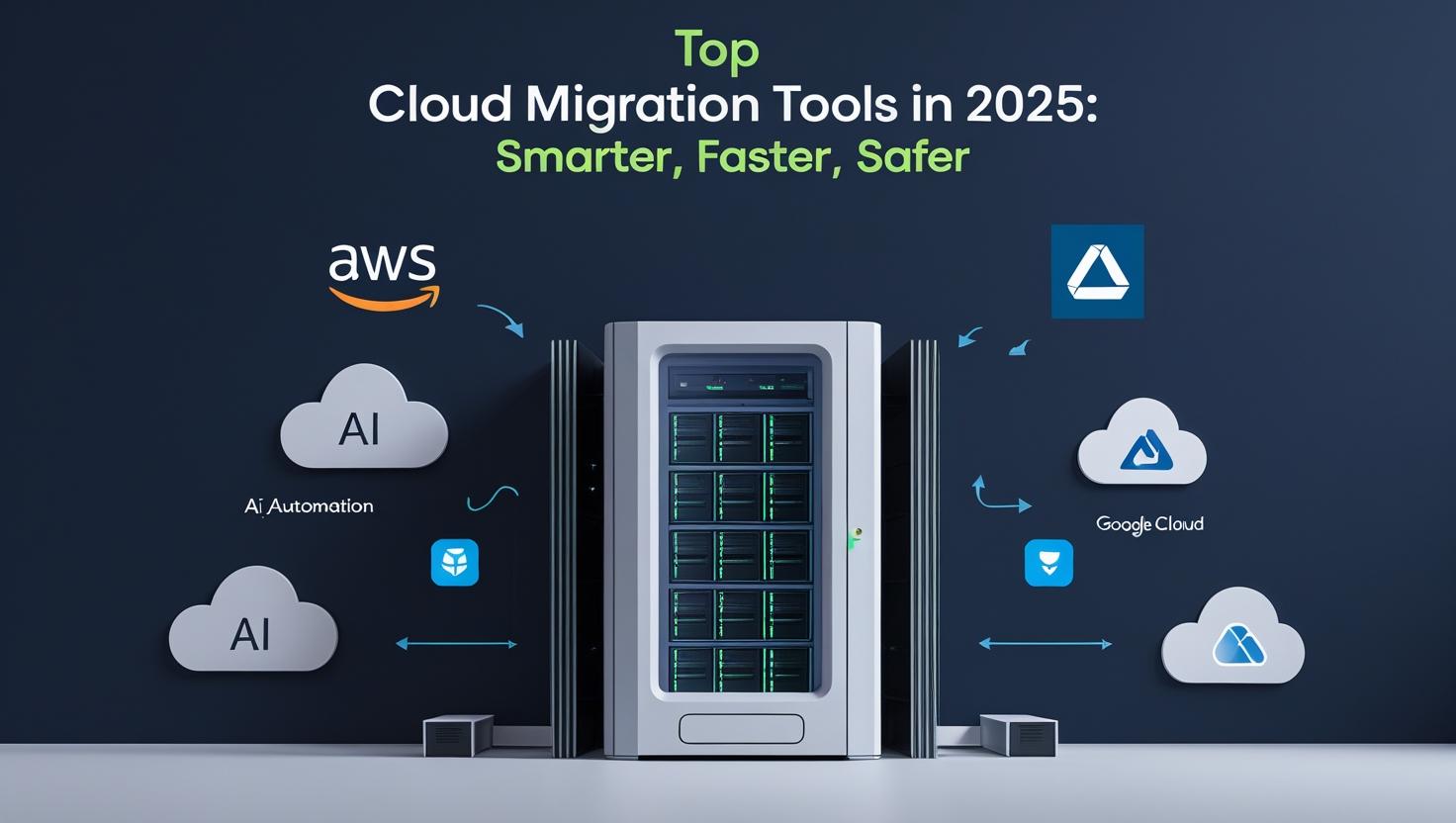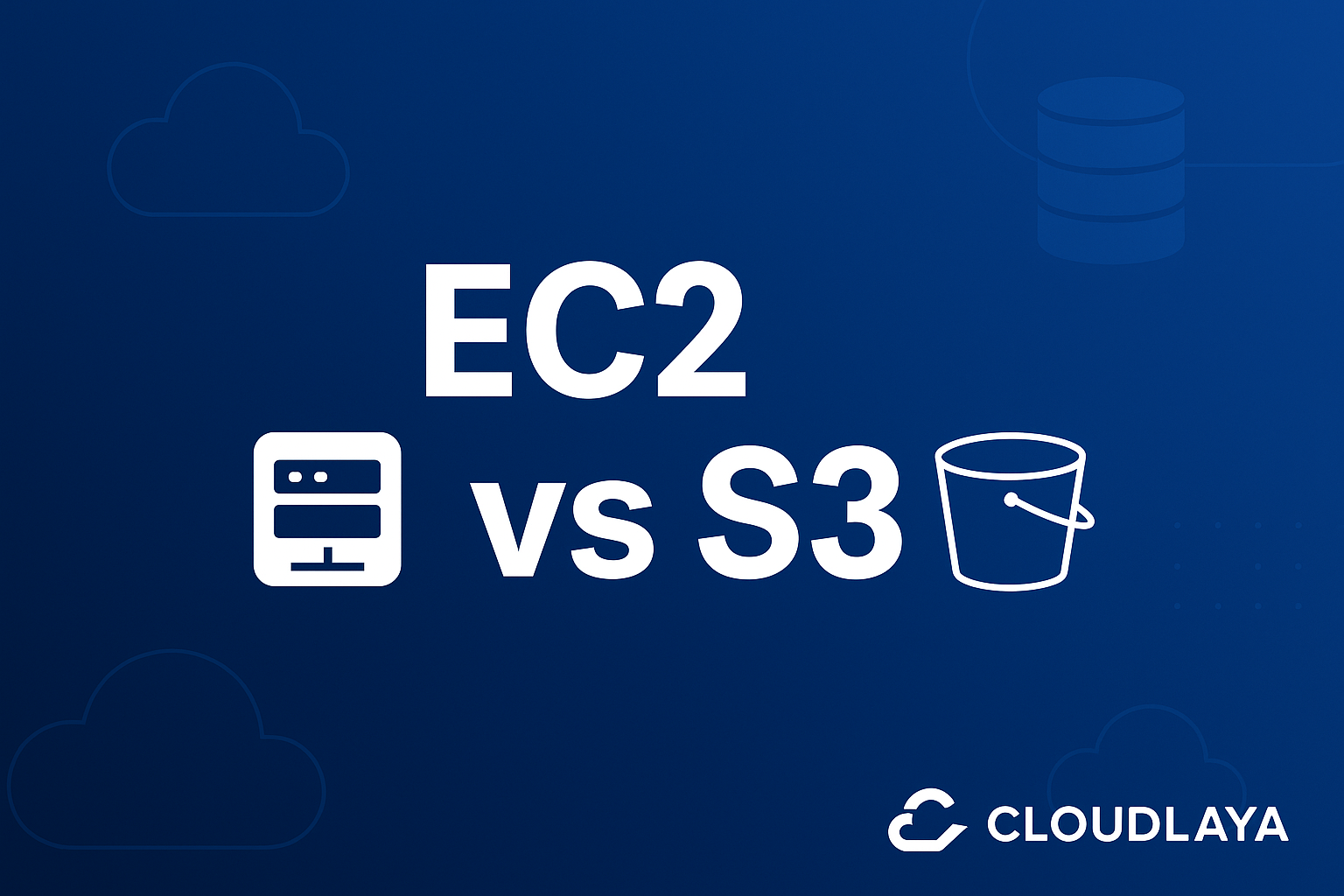
Understanding What is Cloud Hosting? Your Essential Guide for 2025
In today’s digital world, almost every business wants to know: what is cloud hosting? As more companies move online in 2025, understanding exactly what is cloud hosting and why it matters is crucial for your website’s success.
Providers like Cloudlaya offer powerful, flexible, and scalable cloud hosting options for websites of all sizes. This simple guide breaks down what cloud hosting really is, shows how it runs behind the scenes, and explains why so many companies, big and small, are choosing it
What Is Cloud Hosting?
Cloud hosting is a fresh type of website hosting that puts your site on dozens of linked servers instead of just one box in a room. This group of machines, called “the cloud,” shares power, storage, and data so your site can use only what it needs at any moment.
Instead of keeping all its files on a single hard drive, cloud hosting spreads copies of your data across many servers in different places. If one machine fails or gets busy, another picks up the load right away, keeping your pages online and loading fast for visitors.
What is the History of Cloud Hosting
Cloud hosting grew out of the larger cloud-computing idea that started to catch on in the early 2000s. People really began using the phrase cloud computing after Amazon rolled out its Elastic Compute Cloud, or EC2, in 2006. That launch moved cloud hosting from a techy back corner to the front page, and today Google, Microsoft, and scores of boutique firms offer their own polished cloud packages.
How Cloud Hosting Differs From Traditional Hosting
The big change between cloud hosting and old-school hosting is how the hardware is built and how resources get assigned. With traditional plans, your site sits on one server or on a small rack of hardware that never grows. With cloud hosting, a flexible pool of virtual servers automatically adds memory, storage, or bandwidth whenever traffic spikes or falls. To fully appreciate the advantages, let’s look at what is cloud hosting at its core and what makes it unique from older hosting solutions.
Cloud Hosting vs. Traditional Web Hosting
Traditional web hosting relies on one server with a set amount of memory, storage, and processing power. In contrast, cloud hosting pulls resources from a network of servers, so it can quickly adapt to spikes in traffic. Because of this, cloud plans usually promise better uptime, faster loading times, and greater room to grow.
Cloud Hosting vs. Shared Hosting
In shared hosting, dozens of websites sit on the same server, competing for CPU, memory, and bandwidth. If one site suddenly becomes popular, everyone else slows down. Cloud hosting, however, allocates separate virtual slices of resources, so traffic on someone elses site doesnt hurt your performance.
Cloud Hosting vs. VPS Hosting
VPS, or Virtual Private Server hosting, gives you a private portion of a single machine, along with root access and custom software options. That extra control is nice, but hardware still sits in one location. Cloud hosting spreads resources across multiple nodes, so extra traffic or server failure has far less impact.
Cloud Hosting vs. Dedicated Server Hosting
With dedicated server hosting, you lease an entire physical machine, gaining the highest possible speed and customizability. Cloud hosting can cost more on a busy month, yet its pay-as-you-go model means you only spend what you really use. For many growing sites, the freedom to scale up and down usually proves more valuable than a single metal box.
For many website owners, the real decision starts by understanding what is cloud hosting and how it stacks up against other options like VPS or dedicated servers.
To learn more about different cloud hosting models, visit Amazon Web Services’ official overview.
Cloud Hosting Benefits
As you compare web hosting types, consider not just price but also performance, security, and—most importantly-what is cloud hosting able to provide that traditional models can’t.
Because of that, many small and mid-sized businesses are now leaning toward cloud plans. Here are the main reasons:
- Scalability and Flexibility: Resources grow or shrink automatically in response to traffic bursts, letting your site stay fast during busy hours.
- High Availability: A fleet of servers means a single outage rarely drags your site down, and uptime scores often reach 99.9 percent or better.
- Cost Efficiency: Instead of paying a flat fee, you’re billed only for what you actually use, which can save money compared to dated fixed plans.
- Enhanced Performance: Networked data centers around the globe deliver files from the nearest location, cutting latency and speeding each visit.
- Reliability: Built-in backups and quick failover routines slash the odds of lost data or long downtime.
Cloud Hosting Architecture and Features
Cloud-Based Infrastructure
At its core, cloud hosting runs on a cloud-based infrastructure made up of several linked data centers. Instead of relying on a single box, this spread-out setup pools power and storage across many machines. The basic pieces are:
Virtualization Layer: Lets many virtual servers share one piece of hardware
Load Balancers: Spreads website traffic evenly over several servers
Storage Networks: Gives growing, backup-heavy data a safe home
Network Infrastructure: Links all servers and users with fast wires and fiber
What are the Types of Cloud Hosting?
- Public Cloud Hosting
- Private Cloud Hosting
- Hybrid Cloud Hosting
Types of Cloud Hosting
If you’re asking yourself what is cloud hosting and which type fits your business, understanding the different models is essential. The right solution depends on your security, budget, and scalability needs. Below, we break down the three main types of cloud hosting—each with its own advantages for specific scenarios.
Public Cloud Hosting
Public cloud hosting is the most common answer when people search for what is cloud hosting. In this model, your website or app runs on shared infrastructure managed by large providers such as AWS, Google Cloud, or Microsoft Azure. It’s cost-effective and offers instant scalability, making it a strong choice for startups and fast-growing companies.
Private Cloud Hosting
Private cloud hosting is designed for organizations that want the benefits of cloud computing, but with exclusive control over their data and resources. If your business is concerned about compliance, custom security policies, or high-performance workloads, this type of cloud hosting offers the dedicated environment you need—often used by enterprises and regulated industries.
Hybrid Cloud Hosting
Hybrid cloud hosting is the answer for businesses needing flexibility. This solution blends public and private clouds, allowing you to keep sensitive data on a private cloud while leveraging the public cloud for less critical workloads. For many companies researching what is cloud hosting that can adapt as they grow, hybrid models offer the best of both worlds.
With so many options now available, businesses often ask themselves what is cloud hosting best suited for their needspublic, private, or hybrid?
Cloud Hosting Solutions
Cloud Server Hosting
Cloud server hosting spins up virtual machines that act like dedicated boxes. Thanks to cloud underpinning, users can clone, resize, or pause them in minutes through a web panel or API. That speed cuts launch times for new projects and lets staff respond to traffic spikes without over- buying hardware in advance.
Cloud Storage Hosting
Cloud storage hosting delivers endless digital space that expands as companies grow. Options range from simple file back-ups to database clusters and global content delivery networks that zip web pages to visitors around the globe. With built-in redundancy and automated snapshots, firms spend less time babysitting drives and more energy building apps people want.
Scalable Cloud Hosting
Scalable cloud hosting automatically adjusts its power, adding or reducing CPU, memory, and storage based on real-time traffic and usage. By doing this, websites run smoothly during sudden visitor spikes and costs drop when activity slows.
Cloud Backup Solutions
When considering website safety, it’s essential to know what is cloud hosting can do for your backup strategy and disaster recovery planning.
Importance of Backup in Cloud Hosting
Even the strongest cloud setup can fail due to accidental deletion, malware, or other surprises. That is why a good backup plan acts as a safety net, keeping fresh copies of every file and setting so work can resume without long delays.
Types of Cloud Backup Solutions
- Automated Backup: These backups run on a set schedule and need no extra clicks.
- Real-Time Backups: Every change is saved the moment it happens.
- Incremental Backup: Only new or changed files are copied since the last backup, saving time and space.
- Full Backups: A complete snapshot of all data, useful for a quick restore.
Cloud Hosting Benefits: Cost, Flexibility, Security
Cost Efficiency
With cloud hosting, you pay only for the server space and bandwidth you actually use, so bills can be friendlier than with rented servers that sit idle. This model also wipes out big upfront purchases and cuts hardware repair costs.
Flexibility and Scalability
Businesses that see traffic jump in summer sales or holiday seasons value the option to boost resources temporarily and then shrink them again afterward. Cloud hosting makes this fast and simple, protecting performance through every peak and valley.
Security Features in Cloud Hosting
When clients ask what is cloud hosting doing to keep their data secure, the answer involves advanced encryption, global redundancy, and strict compliance protocols.Modern cloud-hosting firms spend serious time and money on security. Heres a quick look at what they put into place:
- Firewalls and Intrusion Detection: Block unwanted visitors and alert admins to strange activity.
- Data Encryption: Scrambles data moving over the net and while its stored on disks.
- Regular Security Updates: Patch servers often so new weaknesses dont stay open long.
- Compliance Certifications: Hold industry badges that show they meet tough security rules.
Choosing a Cloud Hosting Provider
What to Look For in Cloud Hosting Services
Picking the right cloud partner can feel overwhelming, so keep these points in mind:
- Performance and Reliability: Search for a firm with 99.9 percent uptime and speedy page loads.
- Scalability Options: Check that they can add resources easily during traffic spikes or growth.
- Security Features: Read the fine print so you know exactly how your data is guarded.
- Support Quality: Go with a company that answers tickets fast, 24 hours a day.
- Geographic Coverage: Find a provider with data centers around the world to speed global visits.
Understanding Cloud Hosting Costs
One of the most common questions is what is cloud hosting going to cost? The answer depends on real usage, making it fair and scalable for growing businesses. Cloud bills tend to be event-driven: you pay for CPU hours, gigabytes of storage, and the amount of data sent and received.
Because of that, costs will change month to month depending on traffic and resource demands. Wise buyers read the pricing engine carefully and consider set budgets, caps, or forecasting tools to avoid surprise spikes.
Factors Influencing Pricing
- Resource Usage: How much CPU, memory, disk space, and data transfer your project actually consumes.
- Service Level: Whether you pick a basic plan, a premium option, or go all-in with enterprise-grade features.
- Geographic Location: The region where the servers sit can add cost, depending on local power and network expenses.
- Additional Features: Extras like backup, added security tools, and premium support usually raise the monthly bill.
- Contract Terms: Committing month-to-month can be pricier than locking in annual billing, so choices matter.
Future of Cloud Hosting in 2025
Cloud hosting is always evolving. New tech like edge computing, AI-powered automation, and lightweight containers make services smarter and faster. As more companies move online, cloud hosting is becoming the new standard—not just a trend.
Expect to see:
- Serverless setups become mainstream
- Smarter security that works in the background
- Automated management for faster, hands-off hosting
Switching to cloud hosting now puts you ahead of the curve for years to come.
Why Choose Cloudlaya for Your Cloud Hosting Needs?
If you’re still trying to understand what is cloud hosting and want local support, Cloudlaya makes it simple. We help you launch, manage, and scale on the world’s top platforms—like AWS, Google Cloud, DigitalOcean, and more.
- Expert Guidance: We explain what is cloud hosting in clear terms and recommend the right solution for your business.
- 24/7 Local Support: Our friendly team is always here—no ticket too small, no question too technical.
- Hassle-Free Migration: Move your site or data to the cloud, stress-free.
- Billing Made Easy: Simple, local invoicing. No hidden charges. We optimize your costs, too.
- Security & Backups: Your website stays protected with our managed security and daily backup solutions.
FAQs’
Final Thought
No matter the size of your company, understanding what is cloud hosting is the first step toward future-proofing your website in a rapidly changing digital world.
In 2025, picking the right web host can make or break your online project. Cloud hosting rises to the top thanks to its speed, uptime, and easy upgrades, and thats why startups, growing firms, and big brands are all leaning on it. By spreading your data across several servers, cloud hosting keeps your site online, speeds up loading times, and grows with you as traffic climbs.
When you shop for a cloud partner, keep an eye on providers like Cloudlaya, which aim to keep the move to the cloud simple and stress-free. With rock-solid hardware, built-in security tools, and quick-to-help support agents, Cloudlaya platform gives you everything needed to launch, expand, and protect your web business.If you want to learn even more about what is cloud hosting, check out this comprehensive guide by DigitalOcean.
Are you ready to feel what next-generation hosting is all about?
These blogs might be helpful for you.
How Long Does Cloud Migration Take? Timeline, Steps & Guide
The Ultimate Guide to Cloud Cost Optimization in 2025 : A Practical AWS vs. Azure vs. GCP Comparison
Top Revolutionary Cloud Consulting Trends for 2025
What is IaaS vs PaaS vs SaaS? A Complete Guide in 2025
Types of Cloud Hosting for Businesses in 2025



3 thoughts on “Understanding What is Cloud Hosting? Your Essential Guide for 2025”